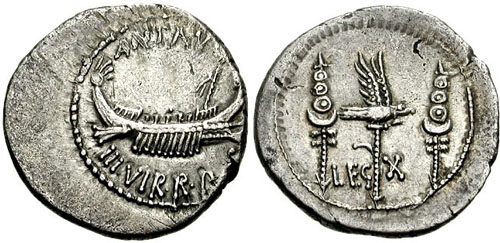
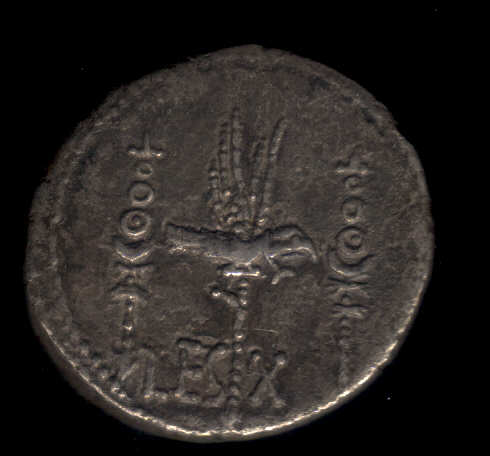 Marcus Antonius
Marcus Antonius
 The Roman Legions On Coins
The Roman Legions On Coins
LEG X Gemina - LEG XXX
Ulpia Traiana
LEG X GEMINA
(Vindobona, Pannonia Superior
= Wien, Austria)

 Marcus Antonius
Marcus Antonius
Augustus-Tiberius (while in Northern Spain), together with
Legio IV
Macedonica and VI Valeria Victrix
together
with Legio V Alaudae
Legio X Gemina is thought to have been opposed (or at least not supportive) to Septimius Severus' claim to the throne, and is thus not honored with a denarius by him. Severus was the commander of the neighbouring Legion XIIII Gemina, Carnuntum and Vienna being less than a day trip apart.
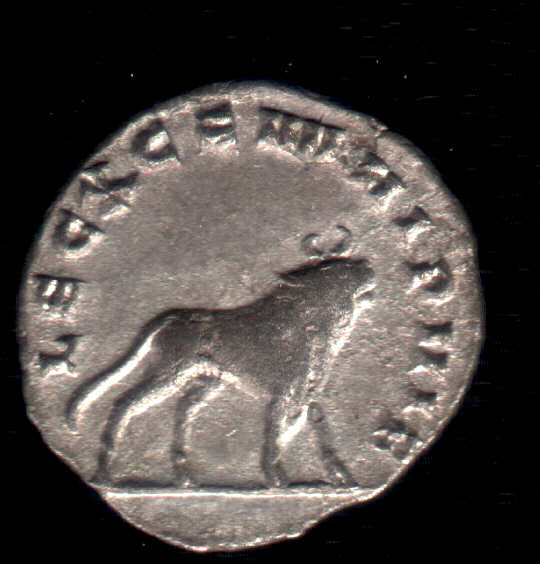 Gallienus Antoninianus
Gallienus Antoninianus
The following coin from Patras in Greece under Claudius makes
referencce
to veterans of a Legio X (either Gemina or more likely Fretensis) and a
Legio XII, likely the XII Fulminata)
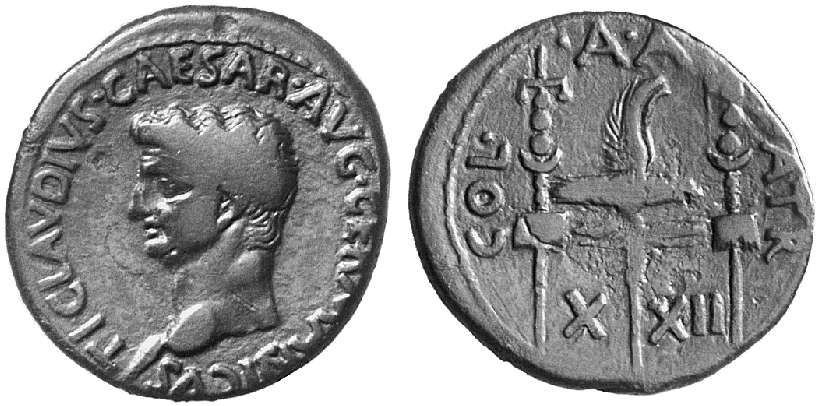
LEG X Fretensis (Jerusalem, Judea)
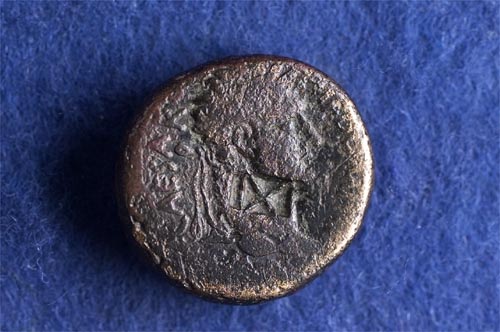 legionary
countermark LXF
legionary
countermark LXF
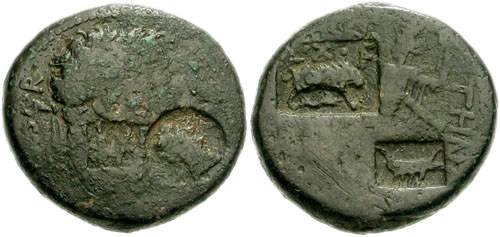 Countermark LXF
Bull/dolphin, and Galley, other side Emperor's head, see also Countermark
Section
Countermark LXF
Bull/dolphin, and Galley, other side Emperor's head, see also Countermark
Section
LEG XI (This
legion of Marcus Antonius cannot be
linked beyond doubt to an imperial legion)
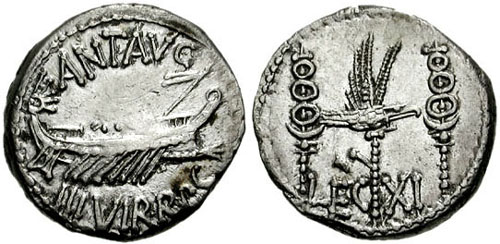
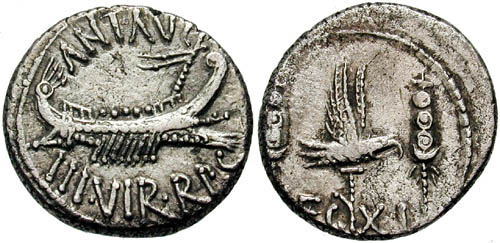 Marcus Antonius
Marcus Antonius
LEG XI CLAUDIA (Durosturum,
Moesia Inferior = Bulgaria)
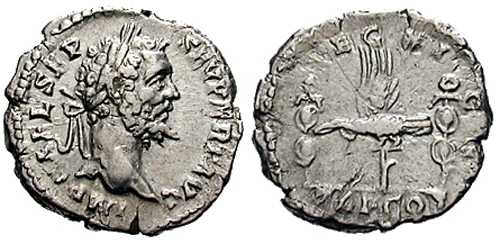
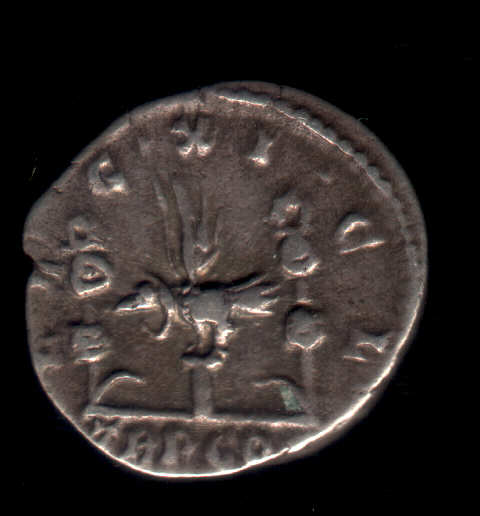 Septimius Severus
Septimius Severus
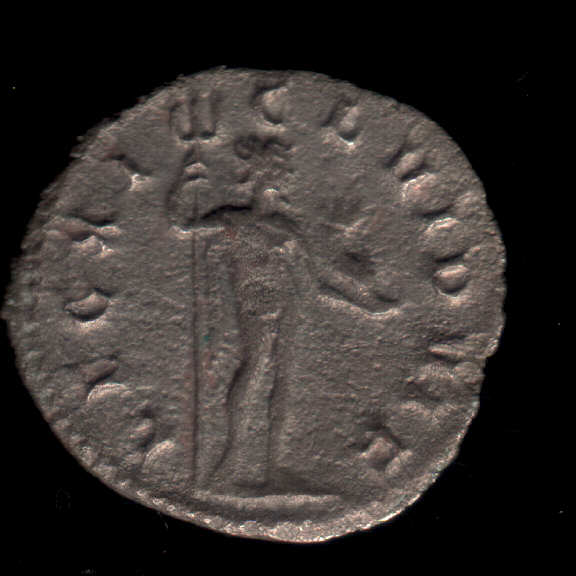 Gallienus
Gallienus
LEG XI Claudia denarius with error LIG XI
CL
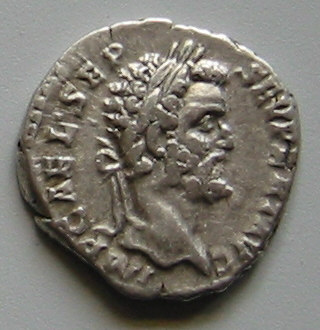
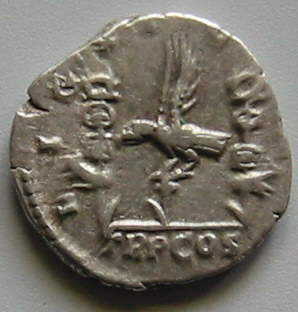
LEG XII FULMINATA (Melitene,
Cappadocia = Turkey)
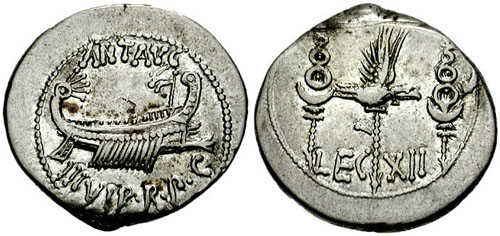
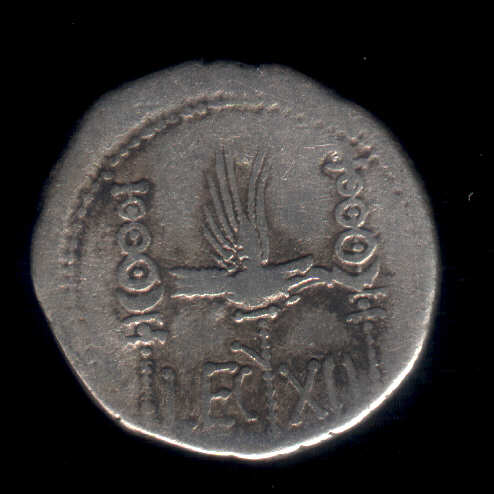 Marcus Antonius
Marcus Antonius
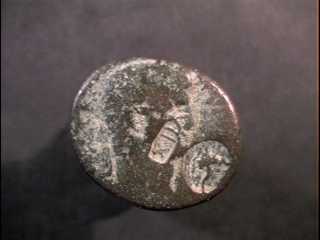 countermark
of Legio XII Fulminata
countermark
of Legio XII Fulminata
LEG XII ANTIQVAE
(This legion of Marcus Antonius
cannot be linked beyond doubt to an imperial legion)
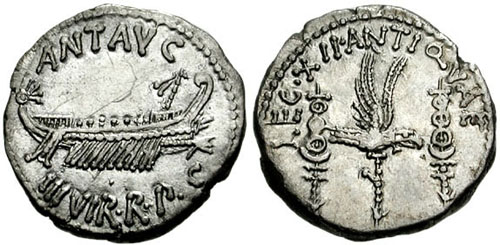
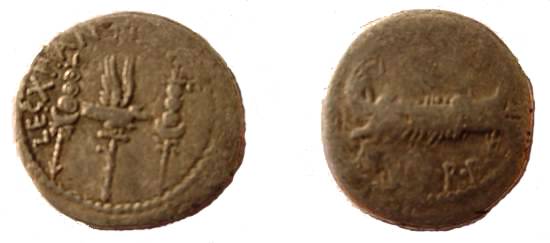
LEG XIII GEMINA (Apulum, Dacia = Rumania,
later Ratiaria = Bulgaria
/ Dacia Ripensis)
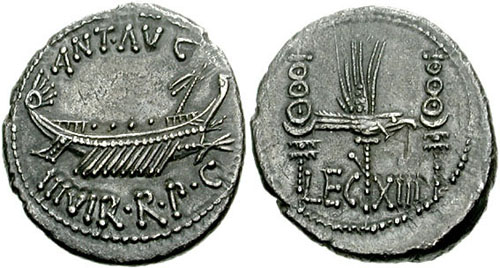
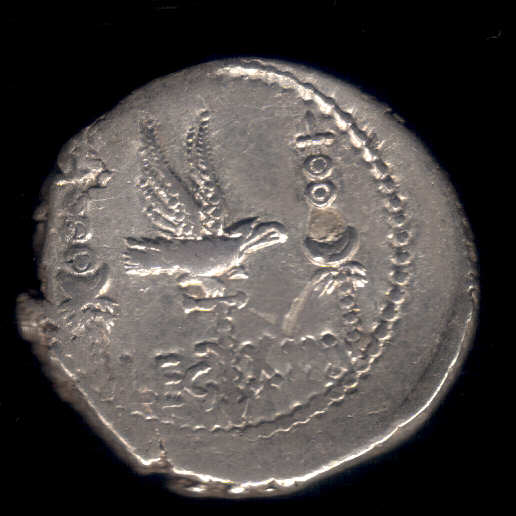 Marcus Antonius
Marcus Antonius
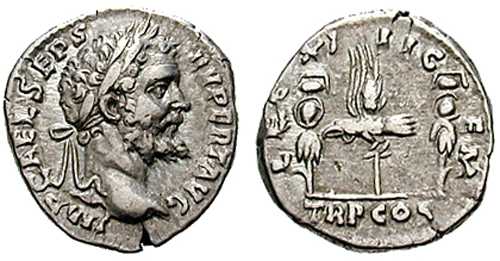
minted in Emesa (mint error, should read XIIII
GEM MV)
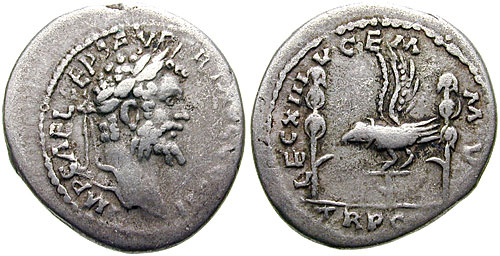
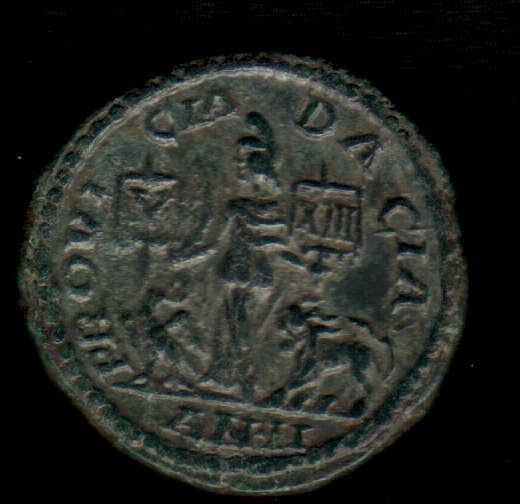
Provincia Dacia, Gordian III and Philippus I, Eagle (V) and Lion (XIII)
as legionary symbols, both legions were based in Dacia
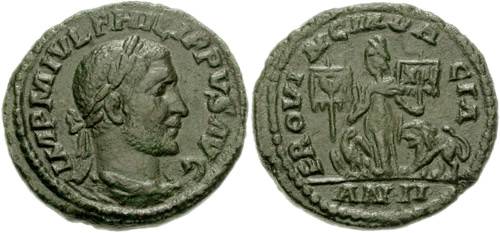
LEG XIIII and LEG XIV (This
legion of Marcus Antonius
cannot be linked beyond doubt to an imperial legion)
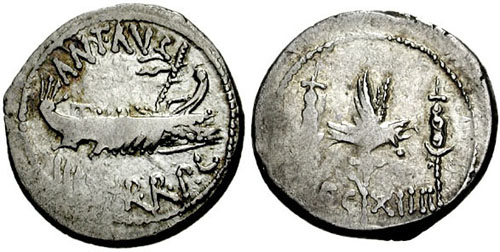 XIIII
XIIII
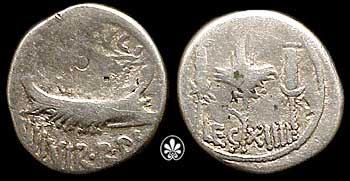 XIIII
XIIII
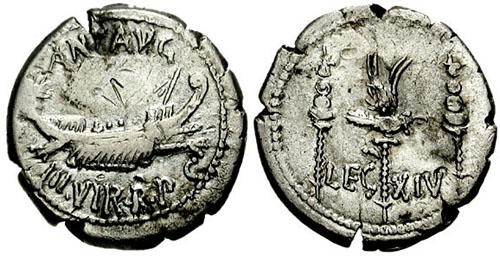 XIV
XIV
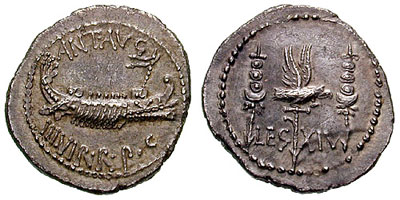 XIV, Marcus Antonius
XIV, Marcus Antonius
LEG XIIII GEMINA Martia Victrix
(Mogontiacum/Germania Superior,
later Carnuntum, Pannonia Superior = Austria), the most common of the
Septimius
Severus Series, as this legion had first proclaimed him emperor
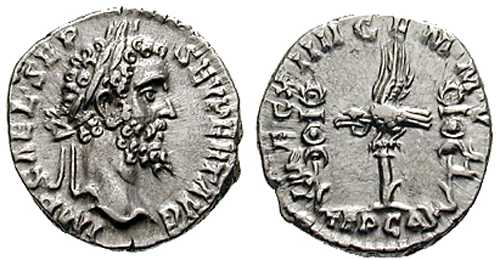
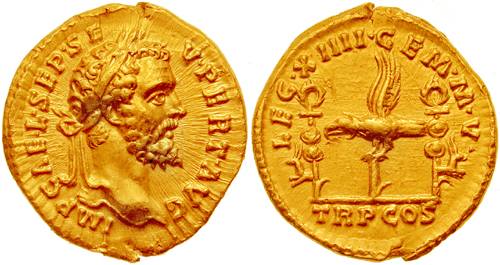 the
rare Aureus
the
rare Aureus
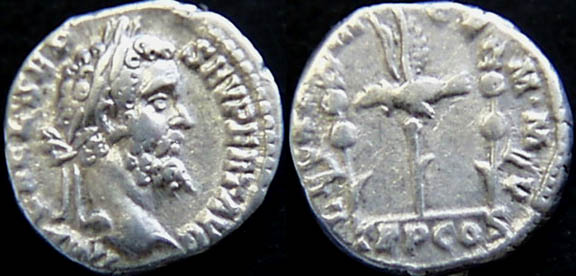 early
portrait style
early
portrait style
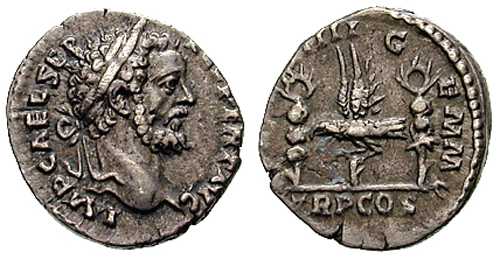 later portrait
style
later portrait
style
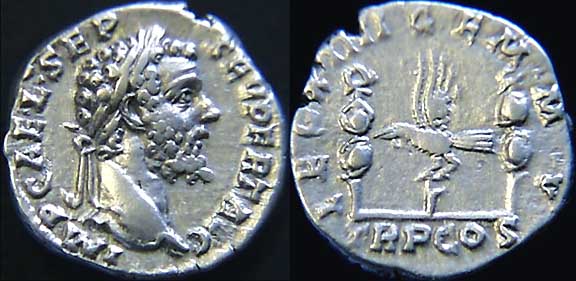
minted in Emesa
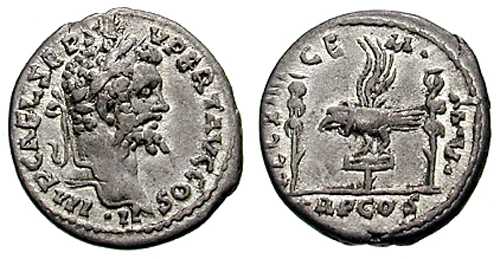
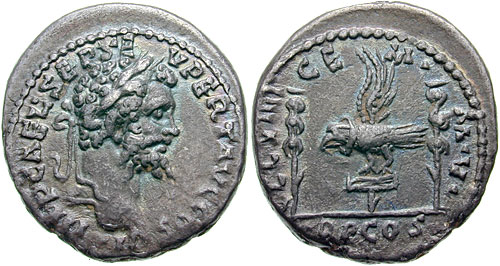
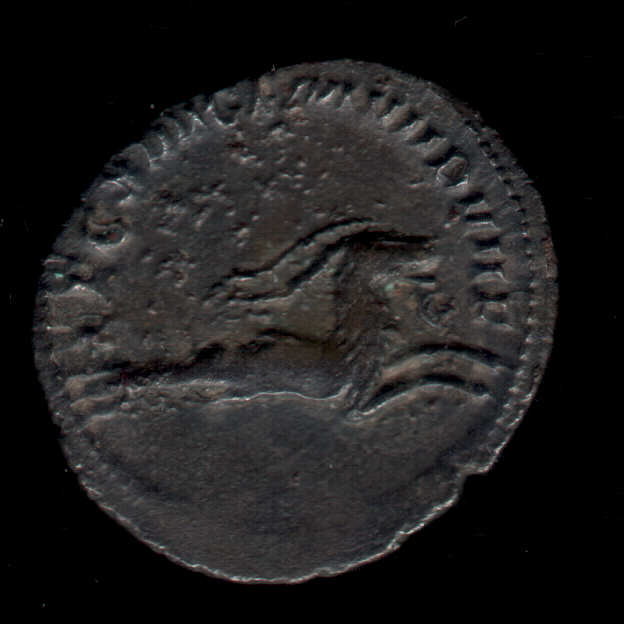 Antoninianus from
Mediolanum of Gallienus
Antoninianus from
Mediolanum of Gallienus
LEG XV (This
legion of Marcus Antonius cannot be
linked beyond doubt to an imperial legion)
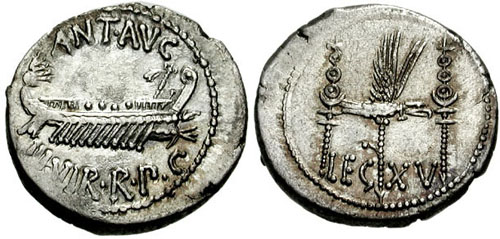
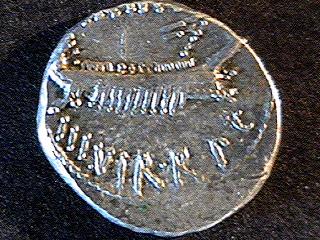
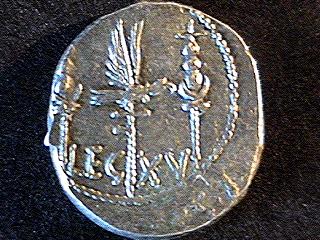
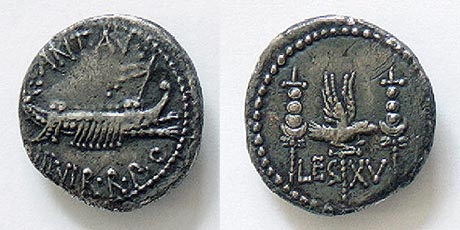
LEG XV APOLLINARIS (Satala,
Cappadocia, Turkey, XVA countermark
on local AE coin)
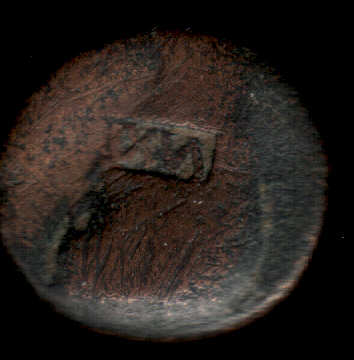 countermark LXVA
countermark LXVA
LEG XVI (This legion of Marcus Antonius
cannot be linked beyond
doubt to an imperial legion)
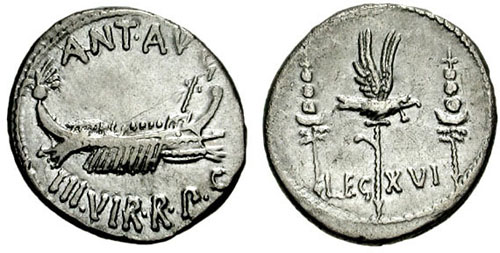
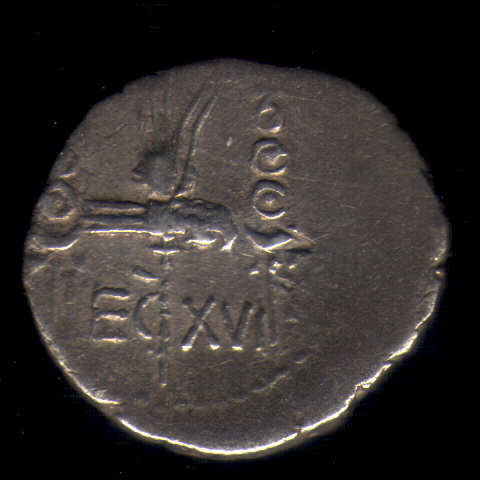 Marcus
Antonius
Marcus
Antonius
LEG XVI Flavia Firma
(Samosata, Commagene)
see below the symbol of this legion, a pegasus, on a regional coin
from Samosata under Philip II
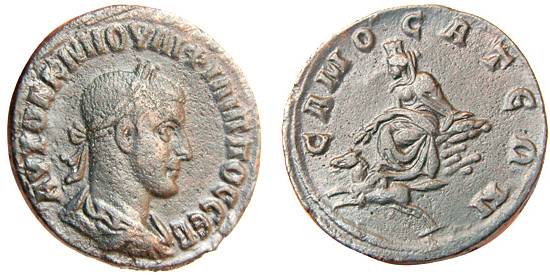
LEG XVII (This legion of Marcus Antonius
cannot be linked beyond
doubt to an imperial legion)
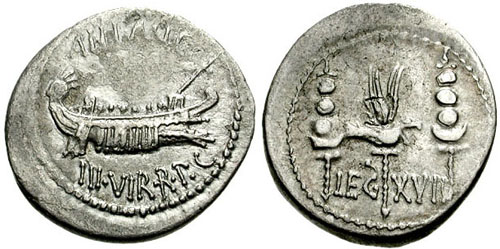
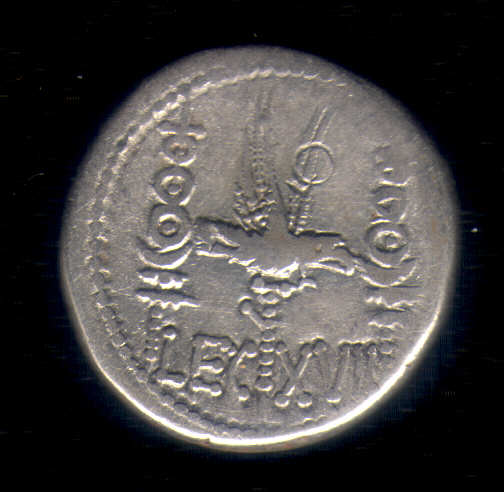 Marcus Antonius
Marcus Antonius
LEG XVII CLASSICAE
(This legion of Marcus Antonius
cannot be linked beyond doubt to an imperial legion)
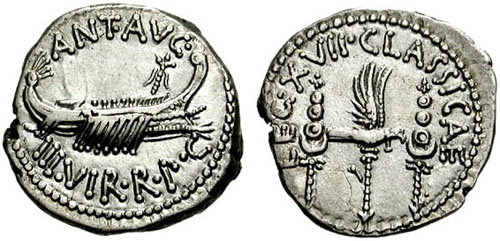
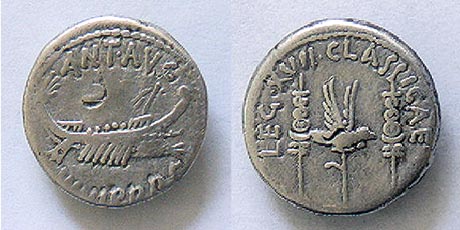 Marcus Antonius
Marcus Antonius
LEG XVIII (This legion of Marcus
Antonius cannot be linked
beyond doubt to an imperial legion)
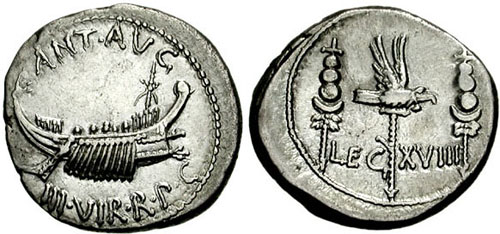
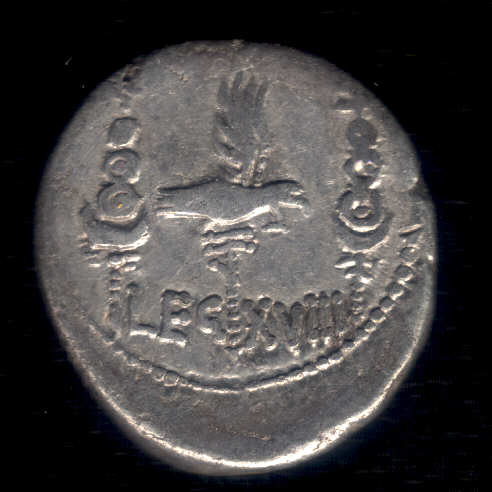 Marcus Antonius
Marcus Antonius
LEG XVIII LYBICAE (This legion of Marcus
Antonius cannot be linked beyond doubt to an imperial legion)
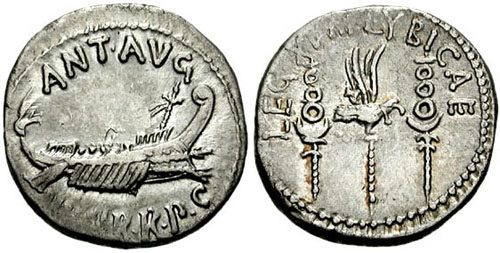
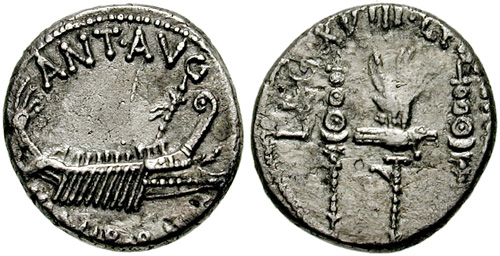 Marcus Antonius
Marcus Antonius
LEG XIX or XVIIII (This legion of
Marcus Antonius cannot
be linked beyond doubt to an imperial legion)
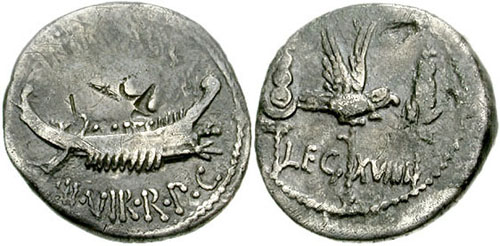 XVIIII, very rare
XVIIII, very rare
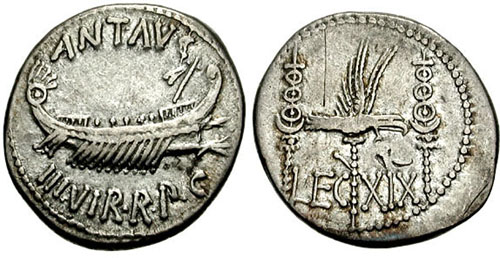 XIX
XIX
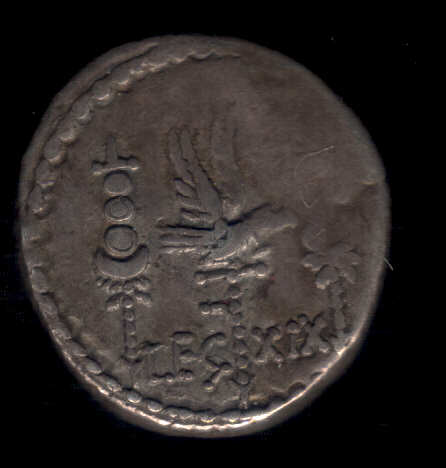 XIX Marcus
Antonius
XIX Marcus
Antonius
LEG XX (This legion of Marcus Antonius
cannot be linked beyond
doubt to an imperial legion)
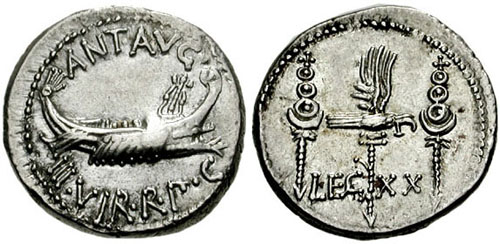
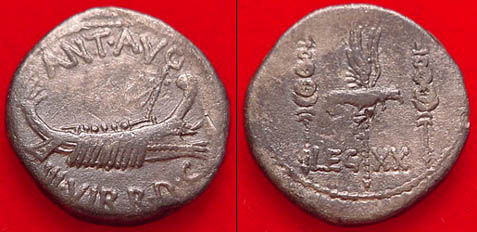
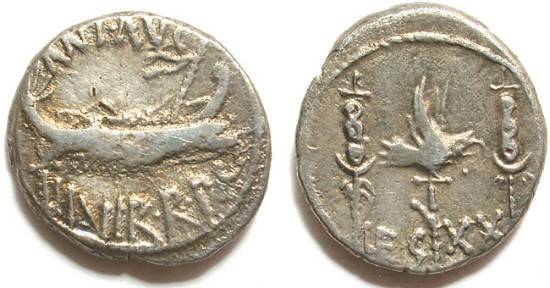 Marcus Antonius
Marcus Antonius
LEG XXI (This legion of Marcus Antonius
cannot be linked beyond
doubt to an imperial legion)
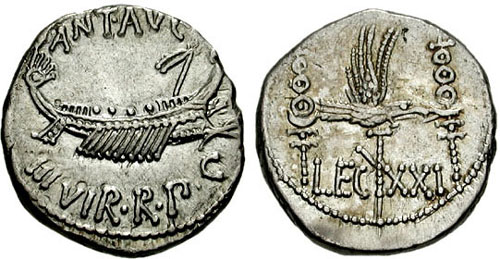
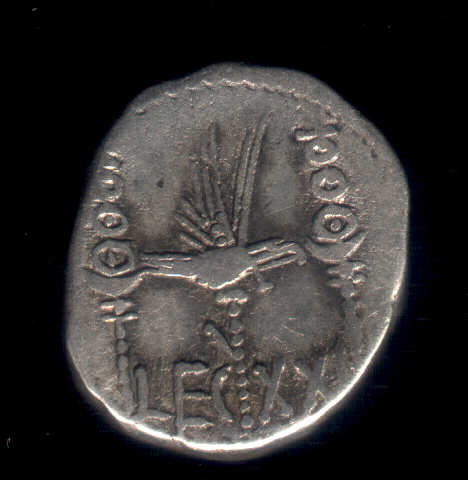 Marcus Antonius
Marcus Antonius
LEG XXII (This legion of Marcus Antonius
cannot be linked beyond
doubt to an imperial legion)
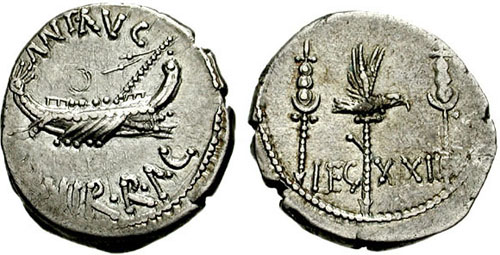
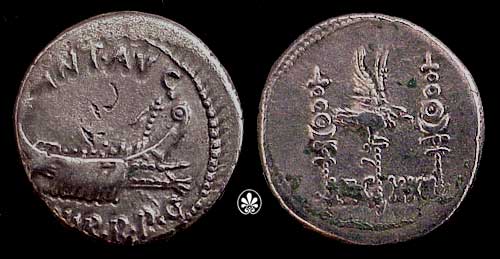 Marcus Antonius
Marcus Antonius
LEG XXII PRIMIGENIA (under
Gallienus sometimes shown as
LEG IIXX, Mogontiacum, Germania Superior = Mainz, Germany)
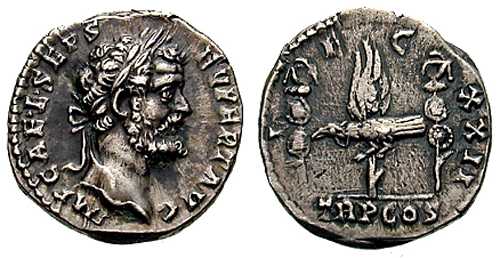 LEG
XXII, Septimius
Severus
LEG
XXII, Septimius
Severus
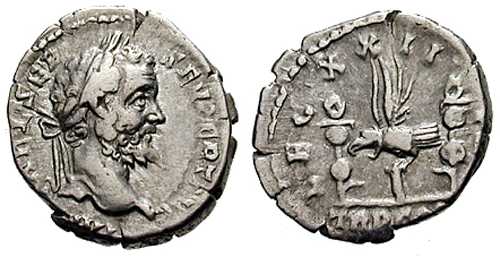
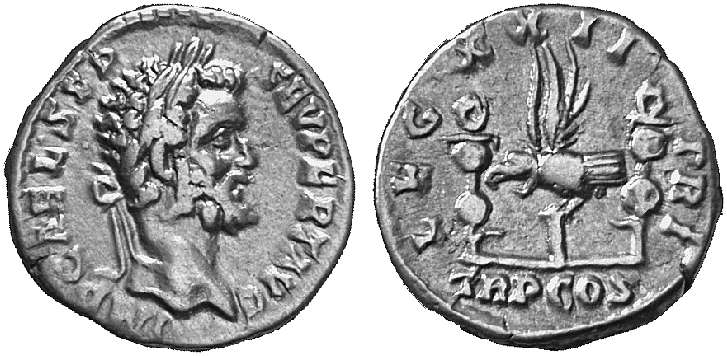
the rarest type of the Severus series is the LEG XXII PRI
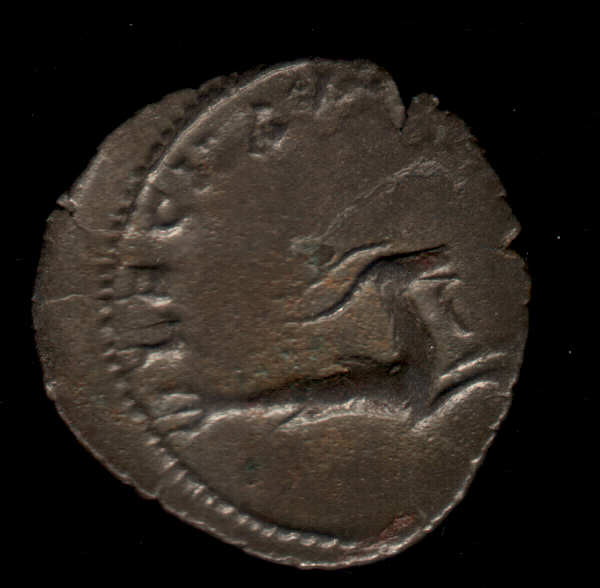 LEG IIXX of Gallienus
LEG IIXX of Gallienus
LEG XXIII (This legion of Marcus Antonius
cannot be linked beyond
doubt to an imperial legion)
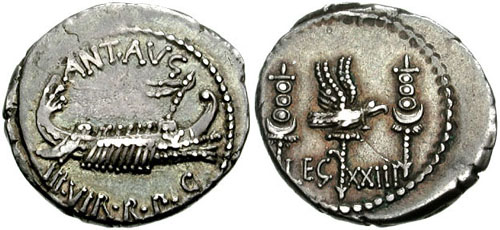
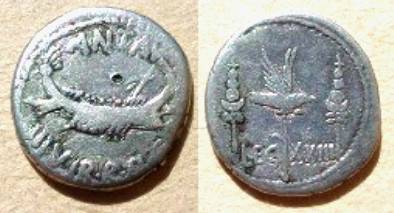 Marcus Antonius
Marcus Antonius
LEG XXX ULPIA TRAJANA (Vetera, Germania Inferior = Xanten, Germany)
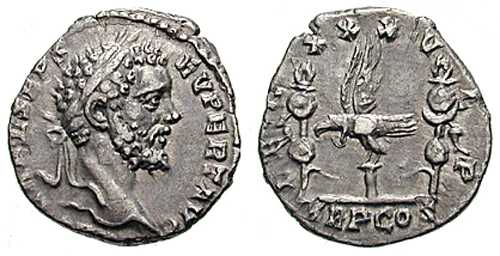 Septimius Severus
Septimius Severus
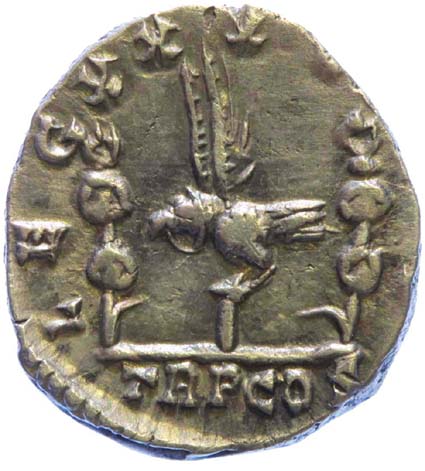
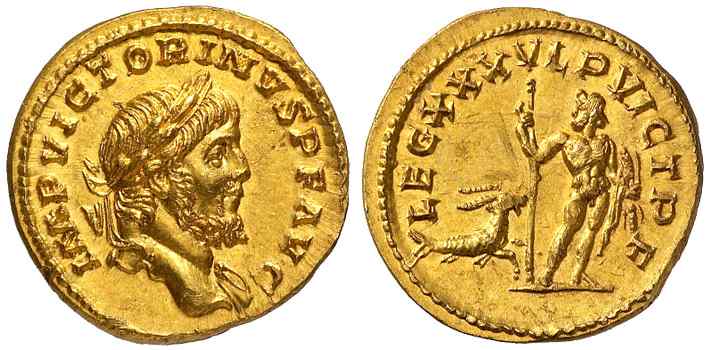 Victorinus
for Legio XXX Ulpia Traiana
Victorinus
for Legio XXX Ulpia Traiana
LIMES FALSA hybrid combining a late
Commodus obverse and a (early)
Severus reverse of the legionary series. Such hybrids are not uncommon
along the Danube limes. It is not clear if these coins were local
contemporary
forgeries, or semi-official coins to ease the shortage of coins in
those
remote regions (with a high demand of money due to the strong military
forces needed to defend the northern border)
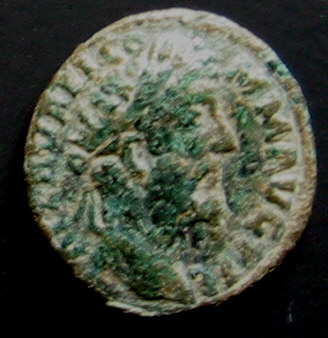
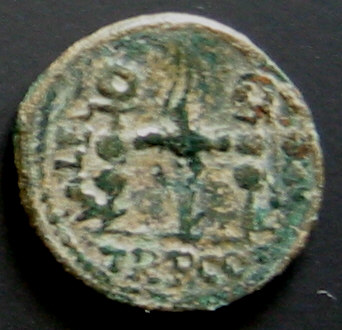
See
here for more "barbaric" Imitations
of Roman coins